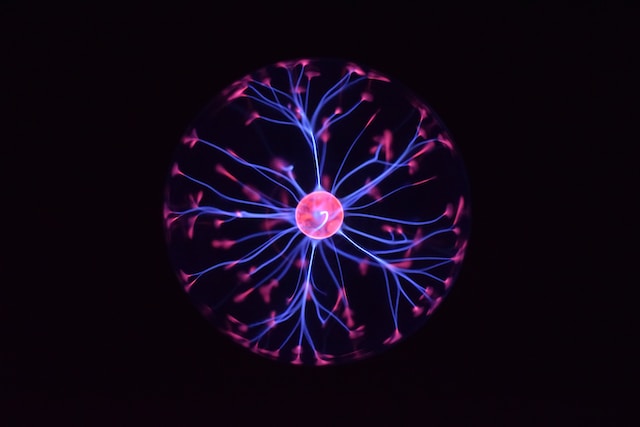If cryonic revival were to become a reality, society would have a challenging time integrating a revived cryonics patient back into the world. One of the main issues is whether cryogenically frozen people would be able to keep their former identity – or would they be treated as a completely new person?
Identity vs Personality
The identity of a cryogenically frozen person is a concept that is often misunderstood. While a sense of humor, personal likeness, attitudes, and temper are attributes of an individual’s personality, the concept of identity is much more complex. There is no universally accepted framework in defining one’s identity. Nowadays, scientists consider several elements such as race, gender, age, sexual orientation, and occupation when defining a person’s identity. It is a generally accepted notion that personality is also one of the elements that make up identity.
From a legal point of view, the concept of identity is defined in many ways. For the purpose of this article, it is sufficient to adopt a definition that is typically used by established organizations such as UNICEF and UNDP. They have defined identity as “the recognition of a person’s existence before the law, facilitating the realization of specific rights and corresponding duties.” Based on this, identity means an individual that possesses a certain status that comes with its own set of rights and duties. This definition would also be applied to a person who has been cryogenically revived.
Can Cryogenically Preserved People Keep Their Identity?
Cryonicists believe that the connections between brain neurons can be preserved. This means that ‘freezees’ (those who have been cryogenically revived) could keep all or almost all of their memories and perception of themselves. While short-term memories might be lost, long-term connections in the brain that define relationships could be preserved, which leads to the assumption that freezees would be able to keep their identity.
However, even if a revived cryonic individual remembered and acted like his/her former self, it does not necessarily mean he/she could claim his/her past identity. For example, a freezee who was a Yugoslav may be stateless now because the former country of Yugoslavia has been reconstituted and renamed. Similarly, someone belonging to a club, political party, or organization might not be able to reclaim his/her membership after the revival. Even kinship or belonging to a certain family would be hard to determine if a freezee has been “away for too long”, as there could be no one left from his/her family.
Furthermore, even if organizations or families continued to exist at the point of revival, proving one’s membership or kinship might be complicated due to issues in identifying a revived cryonic person. From a legal point of view, the identity of cryogenically frozen people is extremely difficult to establish in this current framework. Since freezees are pronounced “legally dead” at the point of cryopreservation, they are no longer registered or recognized as subjects under law. Thus, they do not possess any legal status that gives them rights or freedom. Consequently, at the point of revival, freezees might need to register their “rebirth” and wait until the government provides them with a special status based on the cryonic assumption that death is not final.

Consequences of Losing One’s Identity
The consequences of losing or not possessing an identity are devastating. Most legal identities are registered at birth with a state or governing body. This provides individuals with rights and duties as well as the protection of the law.
The problem with living without a legal identity is well illustrated by today’s indigenous people, some of whom are not registered with the state. While they possess an identity within their tribe, they lack the protection of the law over their basic human rights and freedom. They are legally non-existent and cannot exercise their civil and social rights.
A cryonic revival without legal identity might sound like a better option compared to eternal death. However, the issue of possessing a legal identity is as important as the cryonic revival itself. Most cryonicists would want a legal identity to facilitate their return to the world of the living. If cryonics were to be taken seriously, a resolution to this issue could be sought now as we prepare for cryonic revivals of the future.
Legal Identity Claim by Cryogenically Preserved People
Filing out a court application would be one of the most obvious solutions for freezees to be able to confirm or receive a new legal identity. The common law system – practiced in Commonwealth countries and the United States – might be the most favored because a freezee, or his/her legal counsel, could claim his/her legal identity directly from the court. This is because in the common law system, the courts create the law.
In jurisdictions practicing civil law, as is the case in most European countries, claiming a freezee’s legal identity would be more complicated because new laws have to be initiated and passed by parliament. That being said, common law courts would still have a hard time accepting such a claim because a judge would have to take numerous factors into account. This includes the availability of a living witness who could confirm the identity of a revived freezee, as well as documents confirming his/her previous identity, such as a death certificate. One of the main issues the court would have to consider is the length of time the cryogenically preserved individual was away.
For instance, if the cryonic revival were to occur within 10-20 years, it would be relatively easy for the court to check the freezee’s statements against available records. However, freezees who would have been absent for 300-400 years would present a serious challenge due to the absence of living witnesses or documents that could prove the former’s identity. For this reason, it is a good idea to not only preserve the body parts of cryogenically frozen people, but also the physical proof of their identity such as documents, electronic data, and other information about them.
Likewise, the actual age of cryogenically frozen people would also be debatable. This would present another set of challenges to the authorities that would be bestowing the revived freezee his/her legal identity. The authority would have to decide if one’s actual age should include the years in the cryogenic capsule or only the age at the point of death plus time lapsed after the revival. Since the assumptions of cryonics are based on the expectation of prolonging life indefinitely, it wouldn’t be atypical to have multicentenarians who are 200 or 300 years old.
Takeaway
The possession of legal identity and the acknowledgment of one’s freedom, rights, and obligations is a fundamental right of all living human beings. Since cryonicists expect to return to life after cryogenic preservation, these ethical issues should be addressed as soon as possible to ensure a future where a cryonically-revived individual can seamlessly integrate back into society.
The common law system seems more accommodating towards cryonicists who seek to confirm their legal identity after the revival. Some of them might try to ensure that they retain their current legal identity after death by filing a petition with the court prior to cryopreservation – a small expense considering the considerable amount of assets they have already invested in cryonic preservation.
However, given the probabilistic nature of cryonics at this stage and the complex legal issues involved, there is a high chance that the courts would look upon a petition like this as a waste of time and money. Due to these complexities, it may be wiser for the cryonics community to wait until there is more solid evidence in favor of cryonics.
Considering Your Multiple Identities | American Psychological Association
Gender, Racial Ethnic, Sexual, and Class Identities | Annual Reviews
What is Identity | Department of Political Science, Stanford University
The Right to a Legal Identity or the Right to a Legal ID | the European Network on Statelessness















